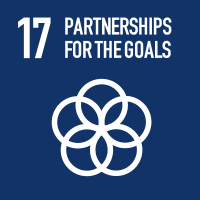Studying at the University of Verona
Here you can find information on the organisational aspects of the Programme, lecture timetables, learning activities and useful contact details for your time at the University, from enrolment to graduation.
Study Plan
This information is intended exclusively for students already enrolled in this course.If you are a new student interested in enrolling, you can find information about the course of study on the course page:
Laurea in Economia e innovazione aziendale - Enrollment from 2025/2026The Study Plan includes all modules, teaching and learning activities that each student will need to undertake during their time at the University.
Please select your Study Plan based on your enrollment year.
1° Year
| Modules | Credits | TAF | SSD |
|---|
2° Year activated in the A.Y. 2022/2023
| Modules | Credits | TAF | SSD |
|---|
3° Year activated in the A.Y. 2023/2024
| Modules | Credits | TAF | SSD |
|---|
1 MODULE TO BE CHOSEN BETWEEN THE FOLLOWING1 MODULE TO BE CHOSEN BETWEEN THE FOLLOWING| Modules | Credits | TAF | SSD |
|---|
| Modules | Credits | TAF | SSD |
|---|
| Modules | Credits | TAF | SSD |
|---|
1 MODULE TO BE CHOSEN BETWEEN THE FOLLOWING1 MODULE TO BE CHOSEN BETWEEN THE FOLLOWING| Modules | Credits | TAF | SSD |
|---|
Legend | Type of training activity (TTA)
TAF (Type of Educational Activity) All courses and activities are classified into different types of educational activities, indicated by a letter.
Sales Management (2023/2024)
Teaching code
4S008937
Teacher
Coordinator
Credits
6
Language
Italian
Scientific Disciplinary Sector (SSD)
SECS-P/08 - MANAGEMENT
Period
Secondo semestre (lauree) dal Feb 26, 2024 al May 31, 2024.
Courses Single
Authorized
Learning objectives
The course aims to provide high-level knowledge in the field of sales management through concrete and innovative tools for managing aspects such as geolocation, digital transformation and multichannel strategies, which today are increasingly important in companies. With this in mind, lectures will focus on sales management, as a business discipline focusing on the practical application of sales techniques and on the management of a company's sales activities. Sales management is a central business function, as the sale of goods and services and the resulting profit drive most businesses. At the end of the course, student will be able to use professional tools aimed at implementing sales strategies, studying the efficiency of the distribution and commercial networks, monitoring sales and appreciation of goods or services on the market. Traditional lectures are integrated with active teaching (group work with classroom presentation, case discussions, speeches by witnesses from institutions and companies, videos in English).
Prerequisites and basic notions
No prerequisites
Program
During the first period of gradual development of sales management, the study of Sales Management was for a long time restricted and linked to the belief that it was an innate skill, linked to a certain "natural predisposition". If the ultimate objective of sales management has remained essentially unchanged over time, i.e. achieving the estimated and budgeted sales volume or value, today's challenges, mainly linked to new innovative and digital tools, including omnichannel, l Artificial intelligence, the evolution of both BtoB and BtoC platforms and marketplaces, require scientific knowledge and skills that certainly cannot be relegated to intuition or presumed natural and individual predisposition. The Sales function is increasingly key both in the generation of liquidity flows and, ultimately, in corporate well-being. The teaching is aimed at students who wish to acquire the skills to fill the role of Sales Manager. It provides the skills to plan and organize a sales network and face the challenges of omnichannel innovation, sustainability and digitalisation. In more detail, the topics covered will be: 1) Introduction to Sales Management 2) The Sales Process 3) Strategic and Sales Planning 4) Revenue and Budget Forecasts 5) Territorial Management 6) Evaluation and Control of Human Resources 7) Management of a Sales Network 8) Sales with a strong innovative content 9) Sales and Sustainability 10) Sales and Innovative Digital Platforms
Bibliography
Didactic methods
In-presence lessons. Witnesses from the business world will be invited to lectures.
Learning assessment procedures
Oral exam at the end of the course.
Evaluation criteria
The exam will consist of an oral test aimed at ascertaining the knowledge of the individual topics. The evaluation criteria are as follows: - Theoretical knowledge of the individual topics - Level of detail and ability to argue the individual topics - Mastery of the language - Ability to connect the topics - Ability to apply the concepts to real cases
Criteria for the composition of the final grade
Grade expressed in thirtieths (18 sufficient grade, 30 cum laude maximum obtainable grade).
Exam language
Italiano



